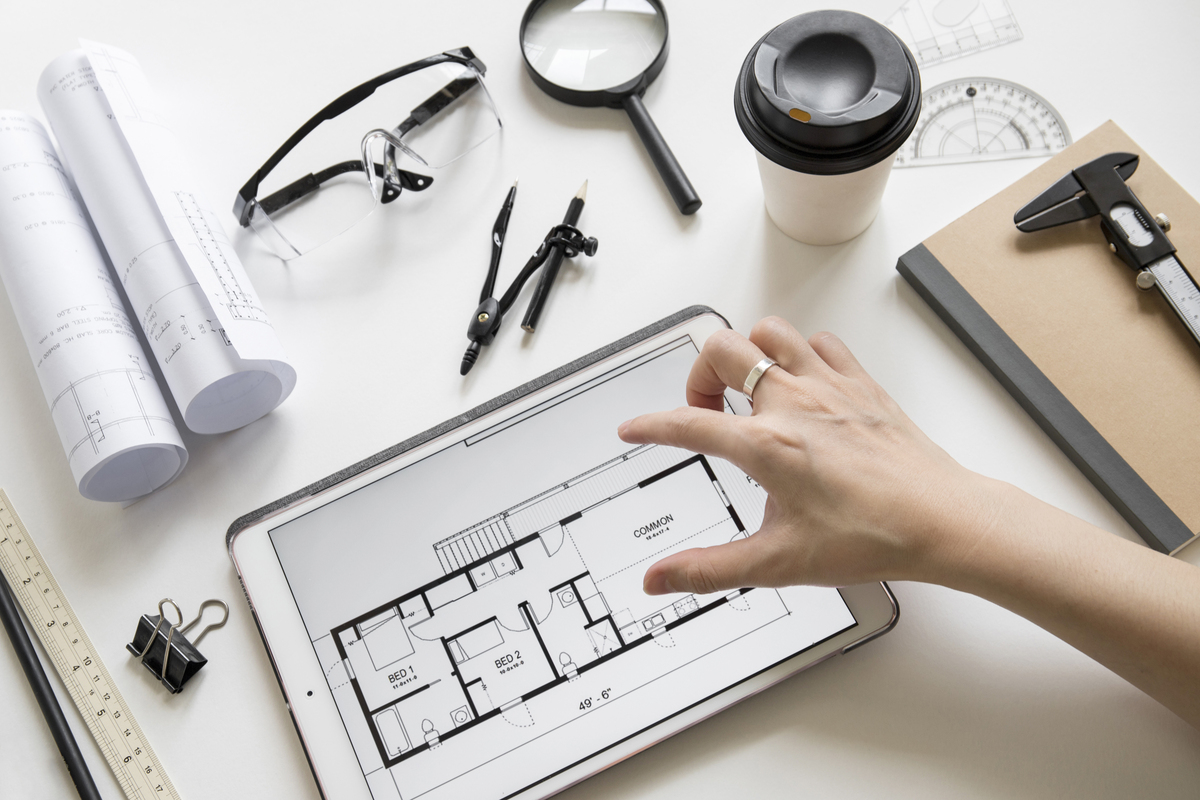The future of smart building construction continues to change, driven by technological innovations and the growing demand for sustainable and efficient building practices. Many significant trends are expected to influence this evolving sector shortly.
These developments, which range from the fusion of AI in construction and the Internet of Things (IoT) to the emergence of green building materials and intelligent energy management systems, can completely alter the planning, development, and operation of buildings. To stay ahead of the curve and reap the benefits of smart building construction, industry experts and stakeholders must thoroughly understand these new trends for the future of smart building construction.
Table of Contents
8 Trends to Watch for the Future of Smart Building Construction
Emerging trends and technology breakthroughs are expected to affect the future of smart building construction. Building design and construction project management are undergoing major changes as a result of these developments, which emphasize efficiency, sustainable construction, and better project outcomes. Here’s a thorough examination of the major themes influencing the development of future of smart building construction:
1. Construction Software
- Improved Communication: Real-time collaboration and document sharing are made possible by construction software, which also help teams communicate more effectively.
- Boost Efficiency: By cutting down on paperwork and organizing project management duties, these tools help save time and increase administrative effectiveness.
Suggested article to read: Top 7 Construction Workforce Management Software Solutions for 2024 | 10 Best Construction AI Software in 2024

2. Green Construction and Sustainability
- Demand for Sustainable Construction Technology: As environmental issues become more pressing, there is a growing need for sustainable construction methods for the future of smart building construction. Using renewable energy sources, energy-efficient designs, and environmentally friendly materials are some of these techniques.
- Energy Efficiency: Putting in place energy-efficient technology, such smart thermostats and LED lighting, can drastically lower a building’s energy usage, helping it to meet sustainability targets.
3. Modular Construction and Prefabrication
- Efficiency and Cost-Effectiveness: Modular and prefabrication in construction minimize construction time and material waste by producing building components off-site and assembling them on-site.
- Superior Quality: When compared to conventional building techniques, this approach provides better quality control, resulting in higher-quality final products for the future of smart building construction.
4. Artificial Intelligence (AI)
- Automation of Operations: Artificial intelligence (AI) is used to evaluate construction data, automate repetitive operations, and support project management.
- Improved Decision-Making: Throughout the construction process, AI algorithms can offer insights and forecasts to aid in the making of well-informed decisions.
Suggested article to read: Role of Artificial Intelligence in Smart Construction Solution; 2024 Guide | AI or Artificial Intelligence in Project Management; 2024 Review

5. Smart Building Construction and the IoT
- Data Gathering and Analysis: Internet of Things (IoT) devices gather and share data, offering insightful information on energy consumption, equipment performance, and project advancement.
- Smart Management: By effectively monitoring and controlling building systems, these gadgets will lessen the effort required by construction project managers for the future of smart building construction.
6. Building Information Modeling (BIM)
- Digital Representation: BIM gives construction project planners and visualizers access to a digital model of the project.
- Client Collaboration: With the use of this technology, project information may be shared with clients and stakeholders, guaranteeing that all parties are in agreement.
7. Automation and Robotics
- Labor-Intensive Jobs: In order to improve accuracy and lower worker dangers, construction robotics are being employed more and more for jobs like pouring concrete, laying brick, and material handling.
- Safety Improvements: Automation in construction can assume risky jobs, improving worker safety and construction site safety and lowering the possibility of hazards on building sites.
Suggested article to read: The Role of BIM in Construction Project Management; 2024 Review

Why Companies ought to Consider the Future of Smart Building Construction
It is critical to keep abreast of developments in the field of smart building construction if you want to safeguard your company’s future. While you don’t have to follow every trend to stay ahead of the curve and dominate the market, it is essential to be up to date on developments in the field.
1. Competitive Advantage
Gaining knowledge of the most recent advancements in sustainable building techniques, future of smart building construction, and effective building procedures will ensure your competitive edge. Using smart building construction and green building techniques can help set your business apart from the competition, improving marketing and positioning for long-term success.
2. Enhanced Productivity and Efficiency
Productivity and efficiency will increase dramatically by utilizing technologies like digital printing, augmented and virtual reality in construction, and building information modeling (BIM). Artificial intelligence (AI) can be used to automate repetitive chores and interact in social media, saving you hours and freeing you up to work on more important decisions and initiatives.
3. Sustainability
It is possible to improve sustainability in building practices by making little adjustments:
- Make use of sustainable resources
- Insulate well to optimize energy efficiency.
- Put in LED lighting
- Control lighting and thermostats using smart home technologies.
4. Improved Results of the Project
Using new technologies will enhance client communication and project planning. With the use of AR/VR technology, clients may plan their new house and make educated design selections prior to the start of construction, eliminating any surprises when the project is finished.
Suggested article to read: The Role of Digital Transformation in Sustainable Future; 2024 Review | Top 24 Sustainable Construction Technologies in 2024

Conclusion
In conclusion, the future of smart building construction is bright and full of innovative opportunities. The eight trends—which range from the use of sustainable materials and advanced energy management to the integration of AI and IoT—highlight the revolutionary potential of smart building construction.
As these technologies advance, they will not only make buildings more sustainable and efficient, but also raise residents’ quality of life in general. Construction professionals should make sure they are well-positioned to lead in future of smart building construction by keeping up with these trends and embracing the latest innovations.
Suggested article for reading:
Building Smarter in 2024: The Role of Sensors in Modern Construction
4 Case Studies of Successful Smart Construction Solutions (2024)
Top 10 Key Technologies in Smart Construction Solutions, 2024 Review
Smart Building Technology; 2024 Guide
Role of Artificial Intelligence in Smart Construction Solution; 2024 Guide
Resources:
Storm4 | Green | BuilderTrend | SwitchAutomation
For all the pictures: Freepik





